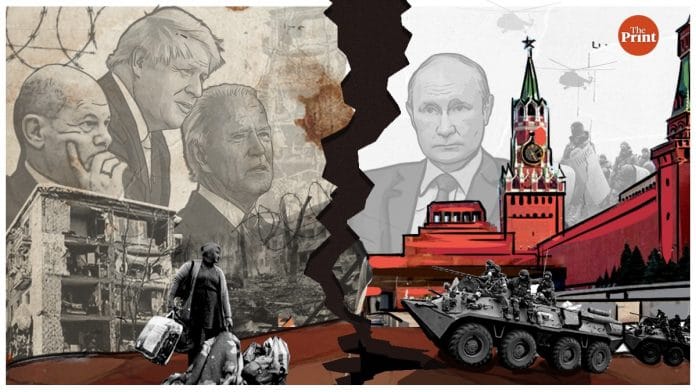Wars don’t come free. As the one in Ukraine grinds on into its third month, country after country is waking up to its costs.
The desire to punish Russia for violating a neighbour’s territorial integrity is backed by high principle. And the unprecedented sanctions regime that the Western powers have imposed targets the seller/aggressor. But every seller has a buyer, and the impact of the sanctions on buyers is beginning to tell. Before Vladimir Putin is brought to heel, there is likely to be economic and possibly political turmoil in countries across the world — including India.
Higher energy costs and the consequent sharp rise in fertiliser prices have contributed to Sri Lanka defaulting this past week on international debt repayments. Pakistan, similarly affected, has seen its government fall amidst a foreign exchange crisis. In India, oil accounts for 28 per cent of the energy mix, and gas a further 7 per cent — with plans to double the latter’s share by 2030. Please plan again, as domestic gas prices have been doubled while long-term international contracts for gas are reported to have seen a 75 per cent price spurt. Spot prices have trebled. Auto and taxi drivers, and the users of cooking gas, electricity, and fertiliser could all feel the pinch — unless the government subsidises them all.
Europe is badly exposed to the shockwaves. In Germany, whose biggest energy supplier is Moscow, the prospect of a rapid shut-off of Russian oil and then gas will translate into massive economic disruption, and (depending on how well or badly it is managed) a recession possibly almost as deep as that in Russia. In the UK, the cap on gas prices has been raised by more than 50 per cent; Boris Johnson may survive scandal, but can he survive higher gas bills and raised taxes?
In the US, less exposed than Europe, petrol prices have increased by nearly 60 per cent in a month, to cross $4 per gallon. American businesses too are feeling the pinch. Netflix, having shut out its Russian subscribers, has seen its share price collapse. Other Western companies that have turned their back on Russia will also be hit by large-scale write-offs. The stock market will feel the heat.
Also Read: Indian economy looks like a champ while the world struggles. But wait, don’t celebrate yet
There is the cost of the war itself. The Russian economy may never recover if the sanctions continue indefinitely. Even if they don’t, can it be back to business as usual? And what of Ukraine? The World Bank says the war’s costs, narrowly defined, are already $60 billion for a country with a pre-war GDP of $180 billion. President Volodymyr Zelenskyy estimates ongoing monthly economic costs at $7 billion. Who will pick up the bill, assuming that Kyiv can repay? Will Europe and the US open their wallets when confronting possible stagflation — and will their taxpayers approve? And what of the IMF’s ever-optimistic growth forecasts for 2022? Will these prove to be another triumph of hope over reality?
Throw into the mix the political fall-out. Marine Le Pen (who has built her election campaign on an anti-inflation stance) may not win against Emmanuel Macron in the French presidential run-off on Sunday, but she could run him close. Europe then will have to consider the possibility of a euro-sceptic coming to power in Paris, five years hence. In the US, the November Congressional elections are likely to see a Democratic rout, and underline the prospect of Donald Trump’s return two years later. If today’s varied troubles herald the march of the nationalist (if not xenophobic) anti-globalisers in key countries of the Western alliance, a political earthquake may be coming.
Finally, consider the impact of the war on the global action plan to tackle climate change. Country after country is reconsidering coal as a long-term energy option, even as Joe Biden in the US has reversed gear and allowed fresh leases of land for drilling to find oil and gas.
All things considered, might it have been better and cheaper, shed less blood, and avoided a huge refugee problem if Russia had been allowed a buffer zone in Eastern Europe? If so, might this go down as another of Biden’s foreign policy blunders?
By special arrangement with Business Standard
Also Read: Lesson for India in a divided world: How to not let old friendships come in the way of new ones






